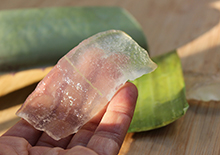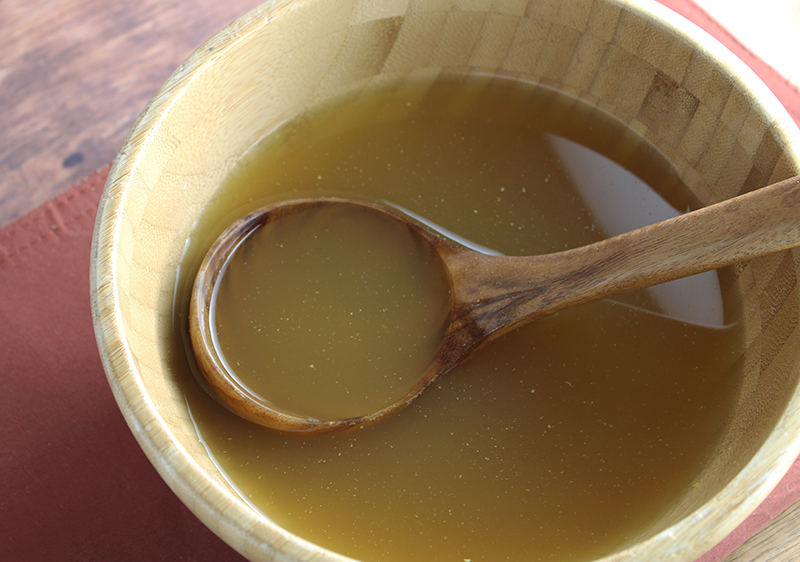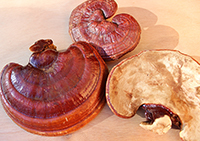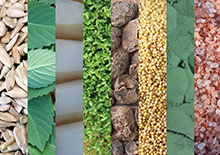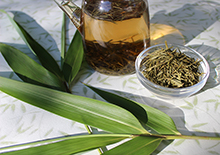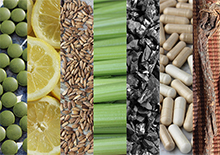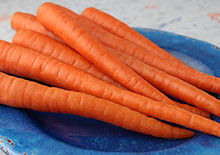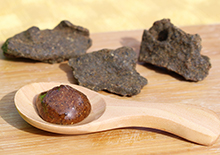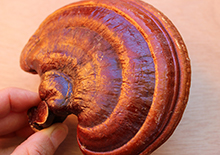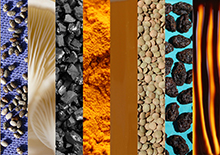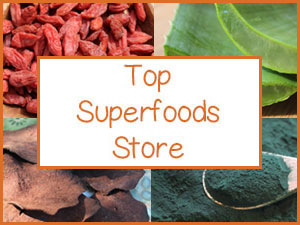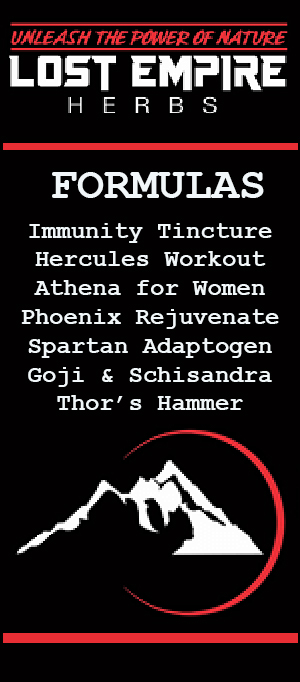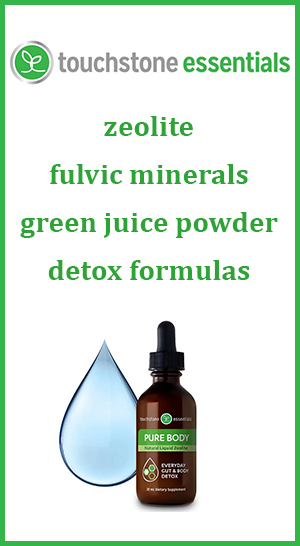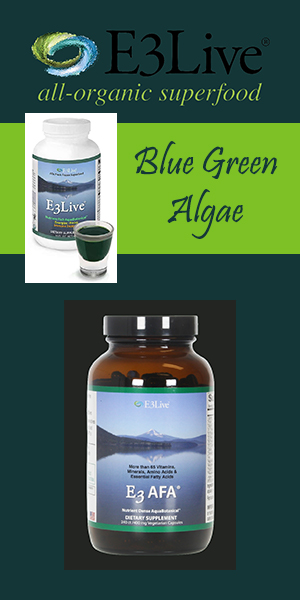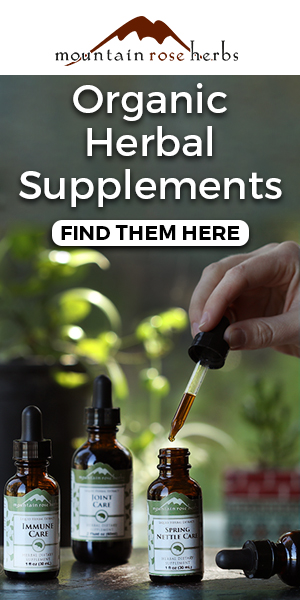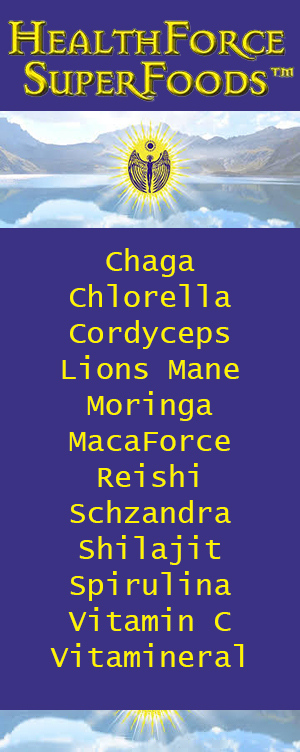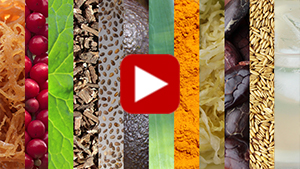- Home
- Top Superfoods
- Foods for Healthy Skin
12 Surprising Herbs and Foods for Healthy Skin
1) SCHIZANDRA
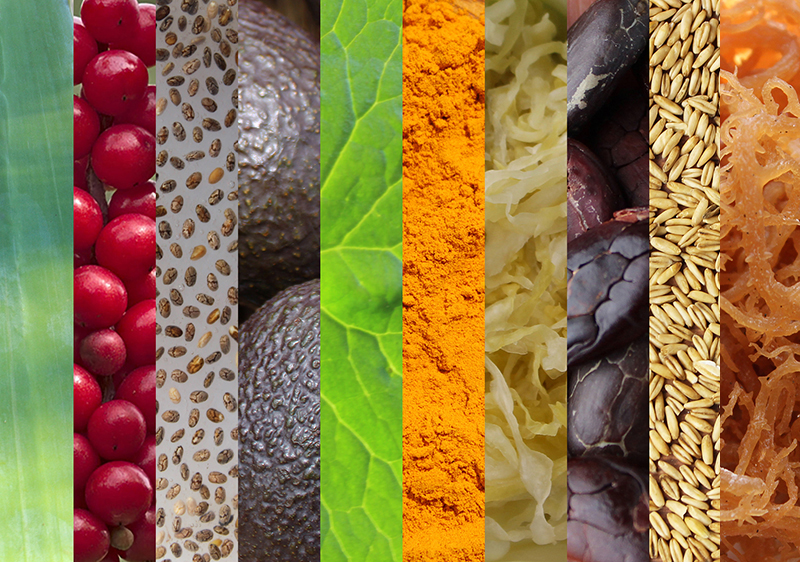
Schizandra berry is one of the famous "beauty tonics" highly revered throughout East Asian history, especially by women.
It is still traditionally used as an important botanical in many skin-rejuvenating formulas and is often associated with the Taoist goddess Magu, a deity representing eternal beauty.
Taking this dried herbal berry for periods of time, as a tea decoction or extract powder, is said to lubricate, rejuvenate and protect (*) the area just under the epidermis layer, providing for soft supple skin.
Schizandra was highly valued in ancient times to enhance and preserve a youthful appearance by prestigious women of the imperial court.
2) IRISH MOSS GEL
Irish moss, also called sea moss, is a type of seaweed widely utilized in natural cosmetics and beauty products for its nourishing effects to the skin.
Its benefits to skin health can also be achieved by internally consuming irish moss gel, which helps to rehydrate and moisturize the skin layer.
One of the reasons for this is due to its higher SULFUR content in addition to its lubricating long chain POLYSACCHARIDES, like carrageenan.
Irish moss prepared as a gel, not only makes a great thickening agent to add to smoothies, shakes and desserts but can be of great value for issues like eczema, sun burns, rashes or psoriasis.
Likewise homemade irish moss gel can be applied directly on the skin for tissue healing and use as a facial mask.

3) OATMEAL
Oatmeal is a wonderful food for counteracting Vata imbalances that include wrinkling or drying of the skin. Cooked oats have a thick mucilaginous nature that helps to moisten from the inside out, promoting soothing skin-moisturizing attributes.
This is because oats are one of the highest food sources of BETA-GLUCAN, a soluble fiber and polysaccharide very useful for encouraging a radiant complexion and collagen strength and firmness.
In addition, oats contain antioxidant phenolic alkaloids called AVENANTHRAMIDES. (*) These compounds help to protect the skin and have anti-inflammatory attributes that can relieve itch and irritation. (*)
4) TURMERIC
As a blood and liver cleanser as well as an antimicrobial agent, turmeric has long been regarded in many herbal systems for its ability to promote healthy skin and clear complexion.
Turmeric root contains the antioxidant known as CURCUMIN, which has been well-researched for its skin-protecting features that can reduce oxidative damage.
Of course, one of the most common benefits of turmeric is its usefulness as an anti-inflammatory agent. Increased inflammation in the body over time can have a negative influence on the skin.
5) GOTU KOLA
Gotu kola (Centella asiatica) is an ayurvedic herb that is especially healing for the skin when consumed or used topically. Two of the primary compounds discovered in gotu kola leaves responsible for this effect are the SAPONINS called asiaticoside and madecassoside.
These two triterpenoids derived from gotu kola are commonly used ingredients in commercial skin cream products as they help to stimulate skin repair, increase collagen synthesis and control inflammation.
6) CHIA SEEDS
Chia is a hydrophilic seed, which means it can absorb large quantities of water. This essentially produces a mucilaginous gel-like coating around the seed which can be very hydrating to the body when consumed.
Soaked chia seeds blended into beverages are very soothing to the mucus membranes and digestive tract. Acting as a mild laxative, chia can be extremely beneficial to the gut microbiome which has a huge influence on the state of our skin.
Another one of chia's properties that makes it a great food for healthy skin is its ALA omega-3 fatty acid content. This is an essential anti-inflammatory nutrient that protects the skin against moisture loss and dehydration.
7) DANDELION ROOT TEA
The use of dandelion root tea can be very helpful for clearing up skin issues. Skin eruptions are often directly connected to the liver organ which plays an important role in hormone regulation. When the liver is clean on the inside, the epidermis usually reflects this with vibrant healthy skin.
Liver herbs, like dandelion root are especially good for reducing acne, rashes and more chronic problems like psoriasis. Along with adhering to a health-promoting diet and lifestyle, dandelion root teas and tinctures can be extremely beneficial to the skin when consumed periodically.
8) DARK CHOCOLATE
Yes, it turns out that chocolate is on the list of foods for healthy skin. Not the sugary sweet highly processed varieties, but dark chocolate made with a higher percentage of cacao and less sugar.
Cacao beans are one of the world's most antioxidant-rich superfoods, containing high amounts of flavonoid and polyphenol content including catechin, epicatechin, procyanidin, anthocyanidin and resveratrol.
These ANTIOXIDANTS protect against oxidative stress and damaging free radicals which play a large role in aging skin. In some research on women, cocoa consumption had "positive effects on facial wrinkles and elasticity."
9) AVOCADOS
There's a good reason avocados are used in DIY face masks. Avocados are a nourishing food for the skin, full of VITAMIN E, CAROTENOIDS and healthy moisturizing monounsaturated FAT content.
In one study, daily avocado intake for 8 weeks was shown to have potential for enhancement of facial skin by increasing elasticity and firmness.
10) CULTURED VEGETABLES
Cultured vegetables, sauerkraut or kimchi are excellent sources of skin-benefiting nutrients like VITAMIN C and PROBIOTICS.
Vitamin C is a valuable antioxidant for reducing and repairing damage to the epidermis layer, supporting collagen synthesis and helping to maintain healthy skin throughout our lifetime.
As an unpasteurized fermented food, cultured vegetables are rich in probiotics which increase beneficial microbiota in the GI tract. In one review, this connection was suggested useful for the treatment of certain skin conditions.
11) COCONUT WATER
Keeping the cells well hydrated as a long-term practice helps to prevent skin dryness and premature wrinkling. Since most people are undernourished when it comes to water intake, this is something that needs to be addressed if maintaining beautiful smooth skin is your goal.
In addition to drinking plenty of pure water, unpasteurized coconut water which is 95% structured water can provide a hydrating way to increase daily fluid intake. It's also full of beneficial enzymes and electrolytes that help to nourish your skin.
12) ALOE VERA
Aloe vera gel is a popular top superfood for the skin, commonly used topically for its healing qualities. Food-grade aloe or freshly filleted leaves also work as a supplemental addition to smoothies or blended drinks.
The mucilaginous polysaccharide-rich gel from the Aloe barbadensis species is very lubricating to the tissues and likewise keeps the skin well hydrated.
Aloe vera gel's sulfur-based content additionally helps to build keratin and collagen, two compounds essential for healthy skin.
Precautions:
These herbs and foods for healthy skin are our personal top favorites. However, it may be appropriate to do your own research so that you can individually tailor this list to your specific dietary objectives and skin-related health issues.
